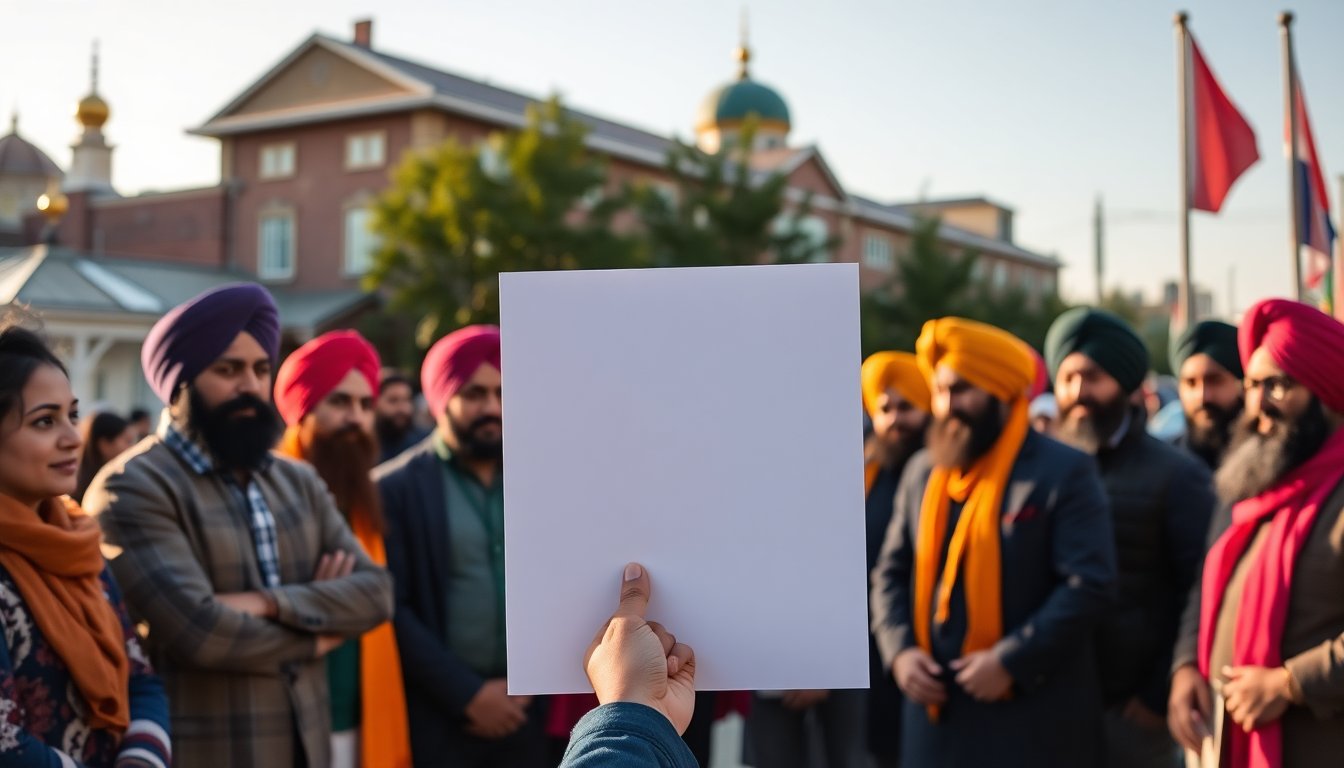Table of Contents
In light of rising tensions and threats within the Sikh community in Canada, Inderjeet Singh Gosal has assumed leadership of the Sikhs for Justice (SFJ) organization. This change follows the assassination of his predecessor, Hardeep Singh Nijjar, in British Columbia. Despite facing potential violence, Gosal remains steadfast in his mission. He recently turned down an offer from the Canadian government that would have required him to abandon his work.
Undeterred by the risks, Gosal is committed to the Khalistan referendum, scheduled for next month in Ottawa. This initiative aims to assess support for Punjabi independence from India and is expected to elicit a strong reaction from the Indian government, which has been accused of orchestrating Nijjar’s murder.
Threats and government response
Gosal, a resident of Brampton, Ontario, has been marked as a significant target for assassination by agents believed to be acting on behalf of the Indian government. This comes in the wake of the unsettling circumstances surrounding the death of Nijjar, which has drawn the attention of Canadian authorities. The Royal Canadian Mounted Police (RCMP) issued a statement following investigations that revealed serious criminal activity<\/strong> involving Indian agents within Canada.
These alarming findings have resulted in a diplomatic stalemate between Canada and India, prompting both countries to expel diplomats. The RCMP has escalated warnings regarding threats to the Sikh community, with Gosal identified as one of the most at risk. His survival of a drive-by shooting last year underscores the critical dangers he currently faces.
Intensifying warnings and defiant stance
Gosal reported that the frequency of visits from the Royal Canadian Mounted Police (RCMP) increased significantly starting in August. He received several warnings about potential threats, especially following a critical visit on September 8. During this visit, police informed him that hitmen were allegedly in the area with intentions to harm him.
In response to these serious warnings, the RCMP suggested the only available protection option: entering witness protection and relocating to a secure site. However, Gosal firmly rejected this proposal, asserting, “I would rather take India’s bullet than stop campaigning for the Khalistan referendum.” His statement highlights his steadfast commitment to the cause.
Legal challenges and public demonstrations
Despite being out on bail following recent arrests related to firearms charges, including careless handling and illegal possession, Gosal remains committed to his mission. He emphasized the need to prioritize the threats against him rather than the legal issues at hand. “I want to highlight the gravity of the situation with the RCMP’s warnings rather than dwell on the charges,” he stated.
Gosal’s determination was evident during a recent protest on Parliament Hill. Supporters of the Khalistani movement rallied, urging Canada to reconsider its approach to India. They demanded that diplomatic relations not be restored until there is concrete evidence that the Indian government will stop its campaign of intimidation and violence against the Sikh community.
International connections and ongoing threats
Gurpatwant Singh Pannun, a prominent figure in the international Sikh referendum movement, supported Gosal’s perspective. He argued that it is unreasonable to expect Gosal to forsake his life in Canada for safety. “He’s not involved in a gang war; he is advocating for a peaceful and democratic campaign,” Pannun stated, highlighting the absurdity of such a demand.
The situation further escalates with ongoing international ramifications, as the U.S. attorney’s office prepares to present evidence connecting a murder-for-hire plot in New York to Pannun’s allegations and Nijjar’s assassination. This connection indicates a broader pattern of violence targeting Sikh leaders who advocate for the Khalistan cause.
Future implications and calls to action
As Canada navigates its complex relationship with India, the implications of recent threats are significant. Foreign Affairs Minister Anita Anand has indicated a cautious approach toward normalization, emphasizing that discussions will take place regarding future diplomatic ties. However, critics like Gosal and his supporters argue that collaborating with a government implicated in assassination plots is fundamentally flawed.
Pannun has called for a thorough reassessment of the diplomatic relationship, urging Canadian officials to address the evidence put forth by U.S. authorities. “How can you normalize relations with a regime pursuing assassination?” he questioned, echoing the concerns of many within the Sikh community.
As the Khalistan referendum draws near, Gosal’s resolve reflects the ongoing struggle for Sikh self-determination amid a backdrop of violence and intimidation.


